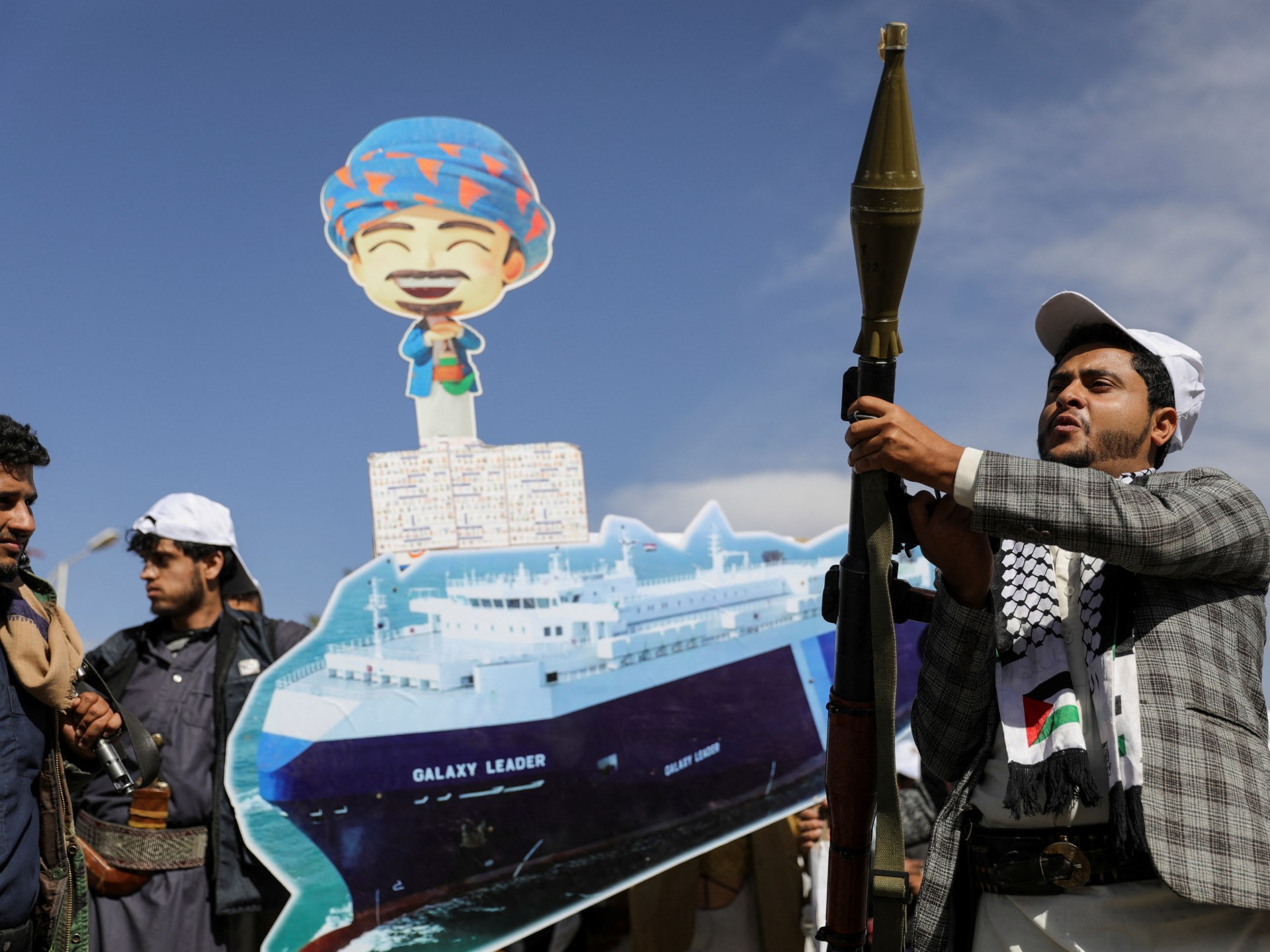The West is afraid that the Houthi group will move from targeting ships to destroying submarine cables (Reuters)
An article published by the American magazine Foreign Policy confirmed that fears have grown in the West about the Houthis targeting a group of submarine cables in the Red Sea that carry all data and financial communications between Europe and Asia.
The article continued that the attacks have so far been limited to commercial shipping ships heading towards Israel, and energy flows through the main crossing point between the Suez Canal and the Indian Ocean. But this new concern highlights the way in which undersea infrastructure has become a critical feature of the global security landscape.
The magazine reported that an account linked to Houthi militants posted in late December - on the Telegram application - what appeared to be threats against dozens of fiber optic cables passing through the Bab al-Mandab Strait in western Yemen.
The magazine's report indicated that submarine cables located at the bottom of the sea have in recent years become part of the security game between countries, as happened when the Nord Stream 1 gas pipeline between Russia and Germany was mysteriously blown up (while the Nord Stream 2 line was damaged). Last fall, power and data lines in the eastern Baltic Sea suffered damage that was described as mysterious. Similar incidents have affected data communications in the Mediterranean.
Great concern
While the submarine cables in the Red Sea have not been damaged to date, the threat of targeting them is very worrying for the West, especially since there are few other alternatives for transferring huge amounts of data and money between Europe and Asia.
Foreign Policy quoted Timothy Strong, Vice President of Research at Telegeography, as saying, “More than 99% of intercontinental communications pass through submarine cables, and this is not limited to the Internet only, but also includes financial transactions and transfers between banks.” Strong added that many defense departments also depend on cables, highlighting that the Red Sea cables are of great importance.
The magazine wondered to what extent the Houthis are able to damage submarine cables, which are usually well fixed to the seabed.
The Brookings Institution researcher ruled out the ability of the Houthis to pose a threat to submarine cables, but he spoke about the importance of monitoring Iran, saying: “I think this is the thing that must be monitored. If the matter escalates and we actually enter into a fierce confrontation between the United States and Iran, then it can be asked whether "The Iranians have this ability."
She noted that there are likely low-tech ways to damage some undersea cables, especially in shallower locations. Strong said that about two-thirds of all accidents involving submarine cables are caused by human error, usually caused by fishing vessels or commercial vessels dragging their anchors on the sea floor.
Repair is difficult
The magazine added that damaging cables usually does not represent a major problem, as the United States and most other countries maintain cable repair ships in a state of waiting to repair any interruption in vital data links under the sea.
But due to Houthi attacks in the Red Sea, it will not be possible for repair ships to spend several days at a time trying to repair the damaged cable.
The magazine added that, following the Nord Stream attacks, NATO established a new cell to coordinate the protection of vital undersea infrastructure, which demonstrates the importance of submarine cables.
The Hague Center for Strategic Studies recently released a new report highlighting the growing importance for European navies to develop unmanned underwater vehicles specifically for monitoring undersea infrastructure.
The report spoke of the need for European naval forces to give priority to protecting vital “access” areas to Europe, including the Red Sea.
Source: Foreign Policy

